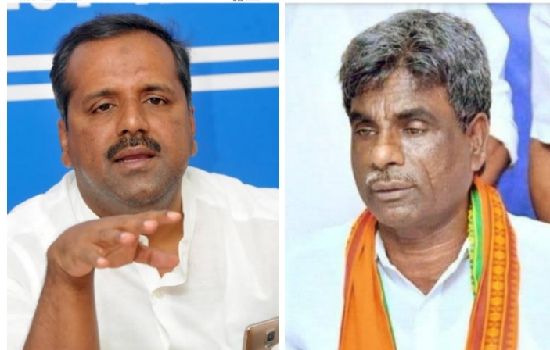Bengaluru, Oct 19: Nandini M, a city-based software engineer, who prefers to be identified as an “animal rights activist” hit the headlines earlier this week after she was allegedly attacked by a mob under the limits of Talaghattapura police station.
The woman had claimed that she was attacked and her car was damaged by a mob after she lodged a formal complaint with the jurisdictional police against the illegal slaughter of cattle at Avalahalli near Talaghattapura.
According to her, two police constables aslo had accompanied her to the spot but they ran away when the mob attacked her. In her second complaint, she went on to claim that the mob raised pro-Pakistan slogans.
The woman gained popularity overnight thanks to the media and saffron forces that not only glorified her but also seized the opportunity to target the state government for failing to curb illegal cattle slaughter.
However, the police later clarified that there was no connection between the alleged attack on Nandini and her fight against the cattle slaughter.
DCP (south) SD Sharanappa was quoted by the report as saying that the police had immediately acted on the complaint filed by Nandini and stopped the illegal slaughter of cattle. The police arrested three people for allegedly slaughtering cows under the cow protection law and rescued some cattle.
However, without trusting the police, Nandini went the lane to personally inspect whether they acted on her complaint. A few people pelted stones at her car for causing accident. The police have also detained seven persons for allegedly pelting stones.
Narrating the sequence of events Bengaluru police commissioner T Sunil Kumar said that Nandini and her two woman assistants had lodged a complaint about cows being illegally slaughtered at Talaghattapura on October 14.
Kumar said Nandini also visited the spot even though police had asked her not to go there when police raided the abattoir.
The police officer said that Nandini’s car had allegedly dashed against an auto-rickshaw and also a petty shop in the area, which irked the residents. The violence was because of the accident. Some of the miscreants pelted stones at Nandini’s car for her rash driving.
On the other hand the local residents, who witnessed the incident, have rubbished the allegation of raising pro-Pakistan slogans as a blatant lie.
Also Read: Bengaluru: Woman techie attacked after complaining against cow slaughter






Comments
The woman who damaged poor people's property would be normally pelted with stones and have her face trashed
Do you think , people watch silently , if you drive recklessly harming others.
CD always trying to turn the actuall news into favour to other relegion issue, if she caused accident also nobody has the right to stone pelt on the car "logic"
Ajit..... .....Suvar na NEWS
Cheddi minds alwz have dirty thought to create tension between hindus and muslims.
Add new comment